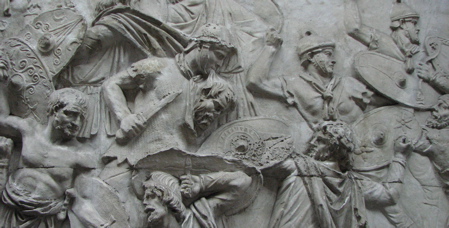Man is a political animal. 
That all persons call the same thing mine in the sense in which each does so may be a fine thing, but it is impracticable; or if the words are taken in the other sense, such a unity in no way conduces to harmony. And there is another objection to the proposal. For that which is common to the greatest number has the least care bestowed upon it. Every one thinks chiefly of his own, hardly at all of the common interest; and only when he is himself concerned as an individual. For besides other considerations, everybody is more inclined to neglect the duty which he expects another to fulfill;
Aristotle, Politics, Book Two, Part 3.
 The origin of the concept of neglect for public property
The origin of the concept of neglect for public property
"For that which is common to the greatest number has the least care bestowed upon it. Every one thinks chiefly of his own, hardly at all of the common interest; and only when he is himself concerned as an individual."
Politics, Book Two; Part Three
There is another point: Should not the amount of property be defined in some way which differs from this by being clearer? For Socrates says that a man should have so much property as will enable him to live temperately, which is only a way of saying 'to live well'; this is too general a conception. Further, a man may live temperately and yet miserably. A better definition would be that a man must have so much property as will enable him to live not only temperately but liberally; if the two are parted, liberally will combine with luxury; temperance will be associated with toil. For liberality and temperance are the only eligible qualities which have to do with the use of property. A man cannot use property with mildness or courage, but temperately and liberally he may; and therefore the practice of these virtues is inseparable from property. There is an inconsistency, too, in too, in equalizing the property and not regulating the number of the citizens; the population is to remain unlimited, and he thinks that it will be sufficiently equalized by a certain number of marriages being unfruitful, however many are born to others, because he finds this to be the case in existing states. But greater care will be required than now; for among ourselves, whatever may be the number of citizens, the property is always distributed among them, and therefore no one is in want; but, if the property were incapable of division as in the Laws, the supernumeraries, whether few or many, would get nothing. One would have thought that it was even more necessary to limit population than property; and that the limit should be fixed by calculating the chances of mortality in the children, and of sterility in married persons. The neglect of this subject, which in existing states is so common, is a never-failing cause of poverty among the citizens; and poverty is the parent of revolution and crime. Pheidon the Corinthian, who was one of the most ardent legislators, thought that the families and the number of citizens ought to remain the same, although originally all the lots may have been of different sizes: but in the Laws the opposite principle is maintained. What in our opinion is the right arrangement will have to be explained hereafter.
Politics, Book Two; Part Six
By Aristotle, Written 350 B.C.E
Translated by Benjamin Jowett
